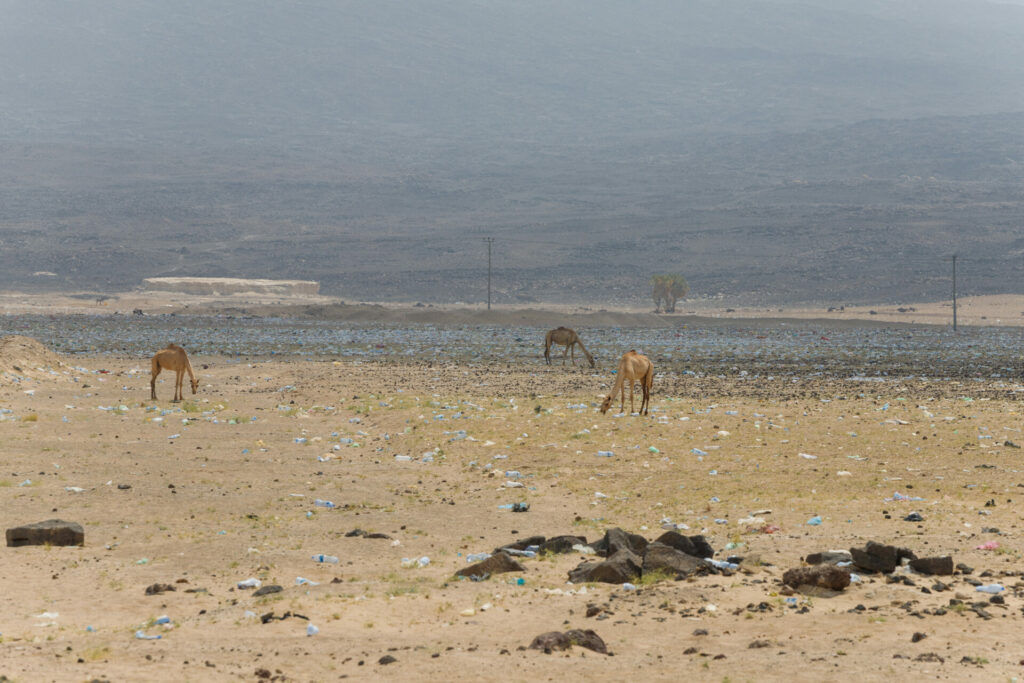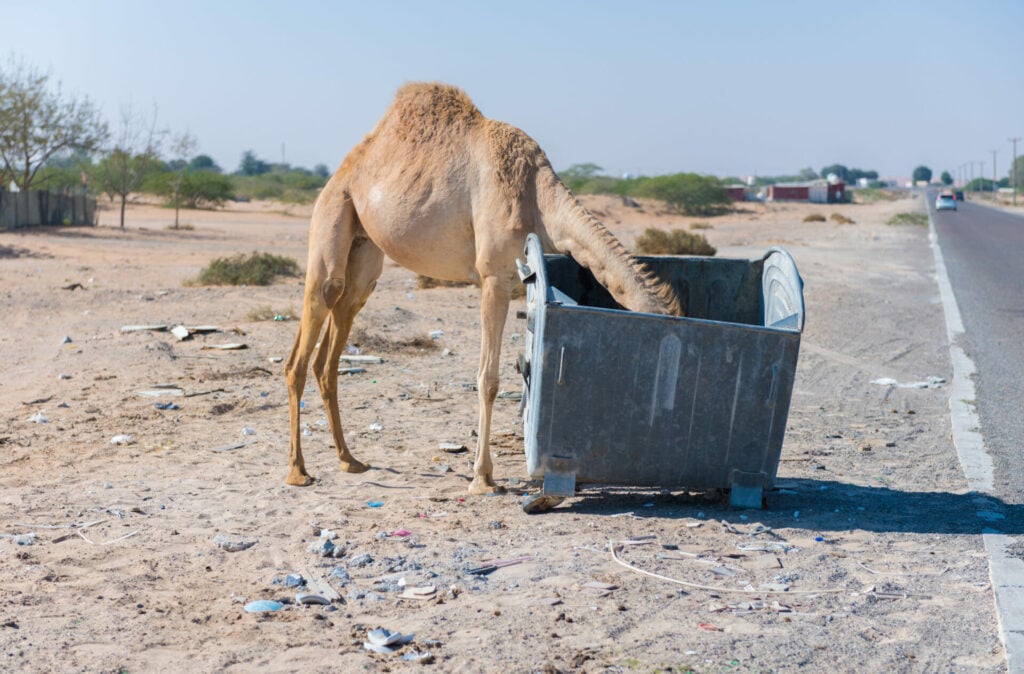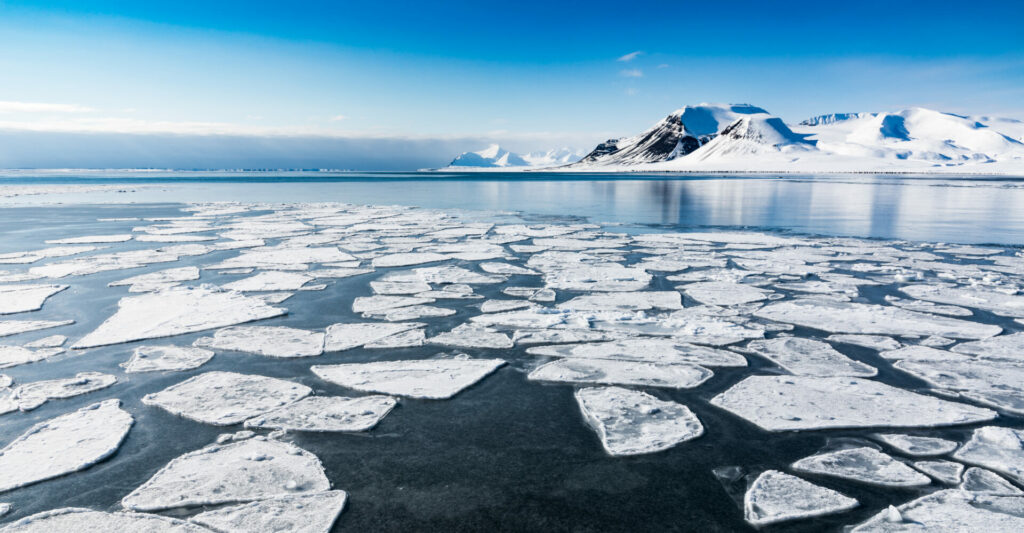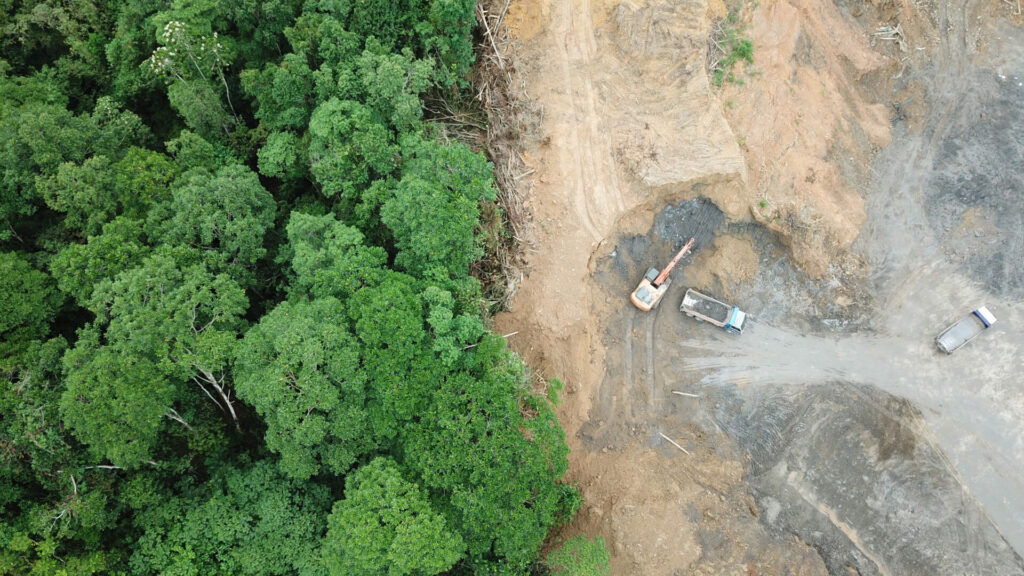Plastic is a problem even in the most remote areas of the UAE’s vast deserts with camels now falling prey to the killer polluter.
The devastating effects of plastic pollution on marine life in our oceans is well documented but it seems no living creature is immune from today’s blight on society, including the UAE’s iconic camel.
A report released last year that investigated the deaths of over 30,000 dromedary camels over a decade, discovered that one per cent – or 300 camels – had died due to plastic ingestion.
Masses of plastic accumulated over time in the camel’s digestive tracts, blocking their intestines, tearing internal organs, and leaking toxins. Some of the animals had swallowed as much as 64 kilograms of plastic – the equivalent of a medium-size suitcase
The research was carried out by Dr Marcus Eriksen, co-founder, and director of research for the 5 Gyres Institute – a non-profit organization and leader in the global movement against plastic pollution – and Dr. Ulrich Wernery, a veterinary microbiologist at Dubai’s Central Veterinary Research Laboratory (CVRL).
The camel remains that were examined displayed compacted bundles of plastic in their stomachs, including plastic bags, rope and other objects.
These solidified masses of plastic, that the research pair coined ‘polybezoars,’ had accumulated over time in the camel’s digestive tracts, blocking their intestines, tearing internal organs, and leaking toxins. Some of the animals had swallowed as much as 64 kilograms of plastic.

‘We unearthed this mass of plastic, and I was just appalled. I couldn’t believe, almost did not believe, that a mass as big as a medium-sized suitcase, could be inside the rib cage of this carcass,’ Dr Eriksen says.
‘We hear about marine mammals, sea lions, whales, turtles and seabirds impacted, [but] this is not just an ocean issue. It’s a land issue, too. It’s everywhere.’
These tightly packed, indigestible masses can also give camels a false sense of fullness, so they stop eating and slowly starve to death.
‘For me, as a veterinarian, to see all this suffering of animals, it’s just devastating,’ Dr Wernery told The National.
While the figures may not seem high at just one per cent, this figure only accounts for the number of camels with ‘polybezoars’ in their guts. The number with any amount of plastics ingested could be much higher.
‘Camels often forage amongst litter and seem happy to eat plastic bags and ropes,’ says Andrew Gardner, Associate Director of Biodiversity Conservation at Emirates Nature WWF who was not involved in the study.

‘However, these remain in the stomach, where over time, they may form large concretions which can block the digestive system, or cause wounds which become infected. The camel dies a painful and prolonged death. Sadly, skeletal remains of dead camels with lumps of matted plastic inside them are not uncommon.’
The Problem with Plastic
With plastic production set to double by 2040 according to a separate report from the WWF, we can anticipate more land mammals dying with bundles of ingested plastic in their stomachs unless product designs and waste management policies drastically improve.
‘If you go through the desert, you find plastic everywhere. People don’t care; they throw their stuff out of their car and it flies everywhere’ says Dr Eriksen.
‘A key problem,’ he adds, ‘is that plastic bags are often caught by the wind and blown across the desert even if initially disposed of properly.’
As a result, the study authors suggested at the time that ‘careful consideration be placed on the role of single-use plastics, their current use and eventual elimination from modern societies.’
With the recent ban on single-use plastic bags in large grocery stores in Abu Dhabi and a fee for plastic bags to be introduced in Dubai next month, hope is on the horizon that the amount of plastic littering the UAE’s desert will decrease.
‘The recent ban of single use plastic shopping bags is a welcome move which will surely reduce one source of plastic in the desert,’ says Andrew. ‘However it is up to everyone to help keep the desert plastic free by not littering, and reducing the amount of plastic used, especially water bottles, drinking straws and plastic bags.’













